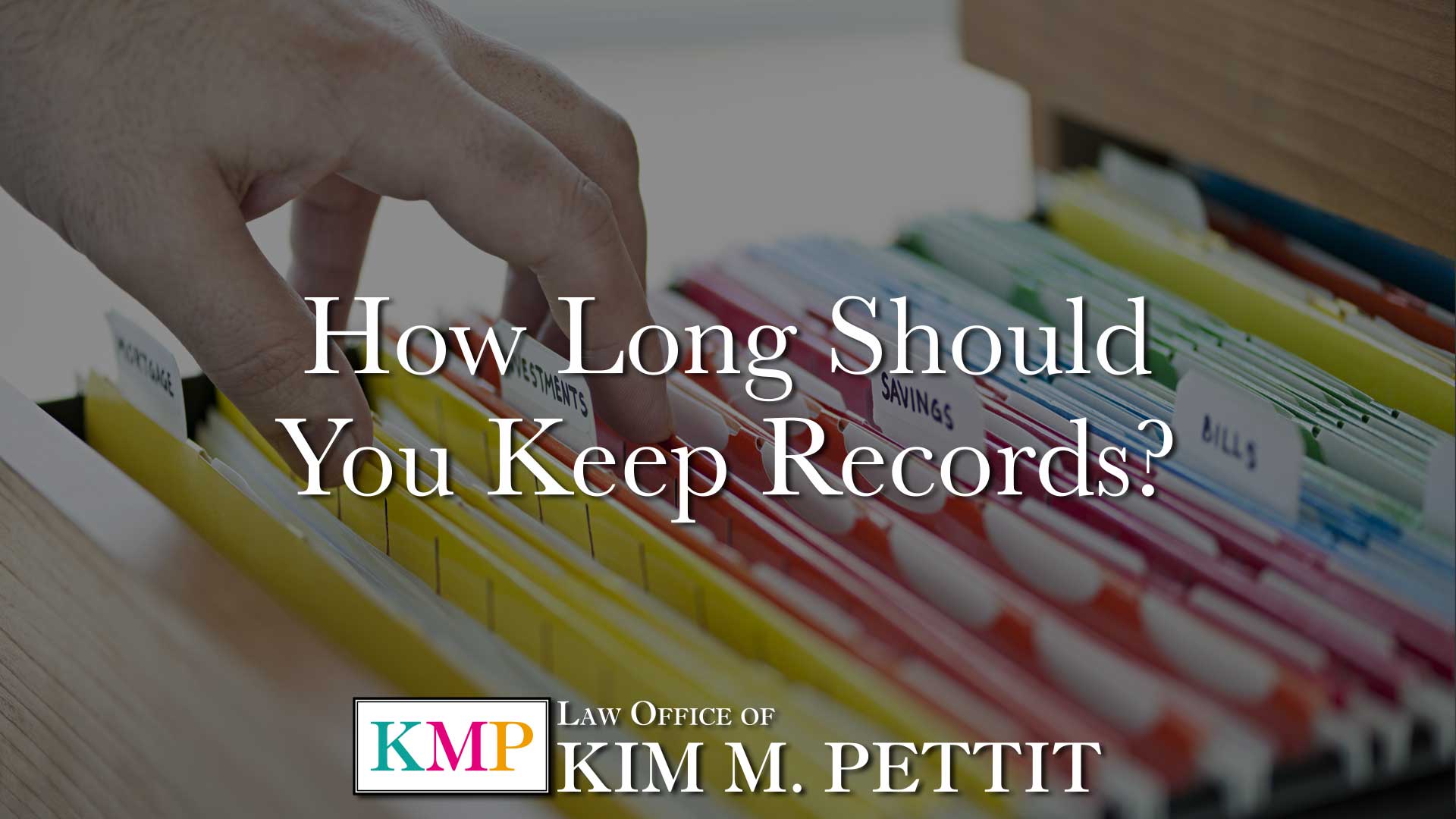It’s time for some spring cleaning, and you’re all set to organize all the clutter that’s been piling up. You grab the first stack of papers that doesn’t belong on the kitchen counter – the stack where you placed various receipts and other paper records you handle daily. But just as you’re about to throw most of it away, you stop and question your action. “Wait, do I need to keep all this? Will I regret throwing any of it away? How long do I need to keep these receipts?”
Sound familiar? You’re not alone. We all have that “go-to place” for the many papers we handle daily – the “I’ll just put it here and deal with it later” stack/box. We keep paper records and feel like we have to keep them for a long time. But, we really don’t.
This article gives guidance about records and receipts you should keep, how long you should keep them, and what you can dispose of. If you scan your records, there is no need to keep a physical copy of them, unless it is a certified copy of a document, which you should keep. If you scan your records, invest in a quality color scanner.
What to Keep Permanently
These records should be stored in a safe place, such as a safe deposit box or a fire/waterproof safe. It is a good idea to make a list of these documents, as well as of your important accounts and other assets, and include the list with the documents.
- Birth certificates of family members
- Death certificates of family members
- Baptism certificates
- Marriage licenses/certificates
- Passports
- Citizenship documents
- Social Security cards
- Court documents (divorce decrees/adoption)
- Records of paid mortgage and other major debts
- All income and expense records if you do not file a tax return
- All income and expense records if you file a fraudulent tax return
What to Keep While Still in Effect
- Titles to property (house, car) for as long as your own the property
- Life, automobile, disability, and liability insurance policies for as long as you have an insurable interest
- Stock certificates
Records to Keep for One Month
- Sales receipts for general consumables (food, gas, etc.). Discard the receipts after you compare them with your monthly credit card statement or bank statement.
- If the item you purchased has a warranty, keep the sales receipt until the warranty expires or until you can no longer return or exchange the item.
- If you need the sales receipt for tax purposes, then do either of the following, depending on the later date: (1) keep it for three years after the date you filed your income tax return, or (2) keep it for two years from the date you paid the tax if you file a claim for credit or refund after you file your tax return.
Records to Keep for One Year
- Credit card receipts*
- Credit card statements* (Keep these until you have confirmed all charges and have proof of payment.)
- Canceled checks*
- Bank statements*
- Quarterly investment statements*
- Paycheck stubs (Discard these after you compare it to your W-2 and annual Social Security statement.)
- Utility bills* (gas, water, electricity, sewer, garbage)
- Telephone/cell phone bill*
- Medical bills* (Keep these longer if you have a pending insurance claim. If the medical bills exceed 7.5% of your adjusted gross income for 2018, you may be able to deduct them. Contact your tax adviser for 2019 and thereafter. If you deduct these expenses, keep the records for three years.)
*If needed for tax purposes, such as for your business or if you have a home office, then do either of the following, depending on the later date: (1) keep it for three years after the date you filed your income tax return, or (2) keep it for two years from the date you paid the tax if you file a claim for credit or refund after you file your tax return.
Records to Keep for Three Years
- Personal and business income tax returns*
- Investment and real estate records
- Records of selling a house (may be needed for capital gains tax)
- Records of selling a stock or other security (may be needed for capital gains tax)
- Annual investment statements
*The IRS can audit you for no reason for up to three years after you filed a tax return. It is recommended you keep your tax records permanently.
What to Keep for More Than Three Years
- 4 years: Employment tax records for at least four years after the date that the tax becomes due or is paid, whichever is later
- 4 years: Contracts, loan documents, and promissory notes
- 6 years: If you do not report income that you should report, and it is more than 25% of the gross income shown on your return, keep records for six years
- 7 years: Any records on home improvements
- 7 years: Records if you file a claim for a loss from worthless securities or a bad debt reduction
For more IRS guidance on maintaining records and statute of limitations, click here. If you’re unsure what tax records to keep, consult an accountant or call IRS Taxpayer Assistance at 800-829-1040.
Disposal of Your Records
Once you decide to get rid of the records you don’t need, DO NOT put them into your trash can or recycle bin. Many of your documents contain sensitive personal information, such as your social security number, account numbers, and account balances. Putting your documents into a trash can or recycle bin is an open invitation for identity thieves to steal your information and possibly gain access to your money. That could lead to major identity headaches and possible financial losses for you.
The easiest thing to do is to shred them immediately. Shredding helps prevent identity theft. For more information on preventing identity theft, visit ftc.gov/idtheft. If you decide to shred your own documents, get a quality shredder that will shred them into very small pieces. Or, take advantage of times when your bank or credit union offers free shredding. If you have a lot of documents and are willing to pay for the service, you can hire a commercial shredding company to do it for you. Click here for more information on shredding documents.
If you would like more information or have any further questions about family law, probate, heirship, wills, powers of attorney, or other planning documents, please contact KIM PETTIT at the Law Office of Kim M. Pettit at (210) 558-4572 or request a consultation below.






